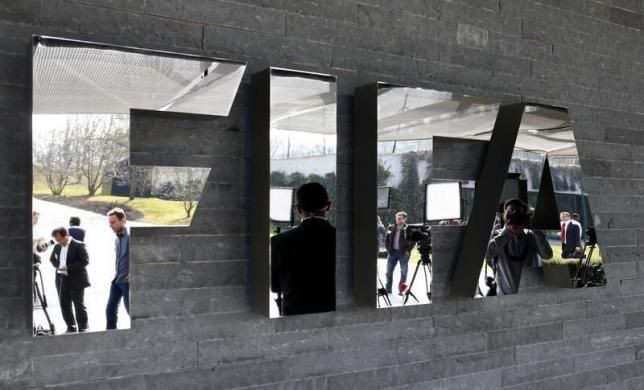Banks Did Not Do Enough To Police FIFA Transactions, Says Global Agency

A global group of government anti-money-laundering agencies said that financial institutions have not done enough to police suspicious financial activity by officials at football’s global governing body FIFA, and cautioned banks to step up scrutiny.
The warning from the Paris-based Financial Action Task Force came in the wake of last month’s indictment by the U.S. of nine current and former FIFA officials and five business executives on a series of corruption charges, including bribery, money laundering and wire fraud.
With the U.S. investigation continuing to widen, and a separate Swiss probe gearing up into whether there was corruption involved in FIFA’s awarding of the hosting rights to Russia and Qatar for the next football World Cups in 2018 and 2022, the warning will add to banks’ concern about handling certain football accounts for organizations and individuals.
Some European and U.S. banks had already stepped up scrutiny of FIFA-related accounts and at least one said it had stopped handling FIFA business for some time because of corruption allegations.
In a statement FATF said that “recent reports about alleged corruption and money laundering activities on a large scale by several high-ranking FIFA officials underscore how important it is that financial institutions identify and monitor high-risk customers.”
It said that financial institutions “do not appear to have given a sufficient amount of scrutiny to the financial activities of the officials concerned, as many of these allegedly corruption-related transfers passed through the international financial system undetected.”
FATF, whose members include the U.S., China, Brazil, Switzerland and many other European countries, said that an “ongoing public debate about the integrity of an entity should raise flags to financial institutions. As a result they should treat customers that are related to that entity as high risk customers.”
Reuters was told about the statement, which appears to be dated June 16, by a European official with knowledge of the FIFA case. It can be found through a Google search but does not appear to be accessible through the FATF website. FATF officials could not be immediately reached for comment on why that was the case.
NARCOTICS CONTROL REPORT
While the indictments were only issued on May 27, for many years there has been widespread media coverage of alleged corruption at FIFA and its regional affiliates, including several books published on the issue in the past nine years. There had also been news reports about the FBI probe.
One question being asked in U.S. banking circles is whether banks are acting quickly enough to flag activity once they have had subpoenas for information about an account from the authorities, said one source close to the industry.
Also in March, in a routine report on narcotics control that was little noticed at the time, the U.S. State Department expressed concern about how loopholes in Swiss law which affected FIFA had created potential for corruption and money laundering. The report is commonly used by U.S. banks to assess the risks associated with foreign customers and correspondent banks.
“Sports associations like the International Federation of Association Football (FIFA) or the International Olympic Committee are not businesses but associations. They do not pay taxes and, as associations, are exempt from the Swiss anti-corruption legal framework,” the State Department said in the report. “The exception provided to these entities makes them more vulnerable to money laundering activity. The government should consider efforts to change applicable laws with respect to these organizations, many of which are suspected of corruption,” it said in reference to the Swiss government.
Despite all the warning signs, the indictment outlines dozens of questionable transactions that banks in the U.S., Europe and elsewhere allowed to go through, many of them in the past few years. In the indictment, U.S. prosecutors say that the defendants and their co-conspirators relied heavily on the U.S. banking system to promote and conceal their schemes.
The acting U.S. Attorney for the Eastern District of New York, Kelly T. Currie, told a news conference when the indictments were announced on May 27 that bank actions would be reviewed to see if they knowingly facilitated bribes. The banks concerned have not been accused of wrongdoing.
EARLIER WARNINGS
FATF has expressed concern in the past about football being a vehicle for money laundering. In 2012, the group issued a warning that as the sport grew, “the investment of money into the sector has increased exponentially, and some of this has criminal connections.”
“Despite the rapid growth and high-visibility of the football sector, however, football’s regulatory structure has not yet caught up with these changes,” FATF warned then.
Earlier, in July 2009, FATF issued a 40-page paper entitled “Money Laundering through the Football Sector”. The document said that football faced numerous vulnerabilities to money laundering, including a lack of professional management at various levels.
FATF said that it would be discussing the issue at a meeting the group is holding, starting Sunday, in Brisbane, Australia, including “whether any further standards or guidance are necessary or whether the current standards are adequate if properly applied.”
The involvement of anti-money-laundering monitors in current investigations of FIFA corruption was highlighted last week by Michael Lauber, attorney general of Switzerland.
Lauber, who announced his FIFA investigation on the same day that U.S. authorities revealed the indictments, told a news conference in Berne last week that his investigators were examining sets of suspicious transactions related to FIFA.
He said that these transactions included 104 banking relationships, some of which involved multiple accounts, as well as 53 suspicious transactions which had been flagged by Swiss financial institutions to Switzerland’s anti-money laundering agency, known as the financial intelligence unit.
(Additional reporting by Brett Wolf in St. Louis and Karen Freifeld in New York; Editing by Martin Howell)
© Copyright Thomson Reuters 2024. All rights reserved.





















